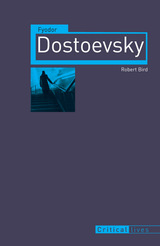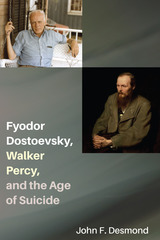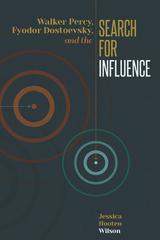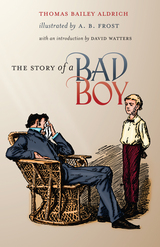
Crime and Punishment, The Brothers Karamazov, Demons, The Idiot—the complex and prolific Fyodor Dostoevsky (1821–81) is responsible for some of our greatest literary works and most fascinating characters. Praised by the likes of Ernest Hemingway, James Joyce, and Virginia Woolf, he is also acknowledged by critics to be a preeminent writer of psychological fiction and a precursor of the twentieth-century existentialism. Set in the troubled political and social world of nineteenth-century Russia, Dostoevsky’s stories were shaped by the great suffering and difficult life the author himself experienced. Robert Bird explores these influences in this new biography of the prominent Russian author.


From Dostoevsky, Percy learned how to captivate his non-Christian readership with fiction saturated by a Christian vision of reality. Not only was his method of imitation in line with this Christian faith but also the aesthetic mode and very content of his narratives centered on his knowledge of Christ. The influence of Dostoevsky on Percy, then, becomes significant as a modern case study for showing the illusion of artistic autonomy and long-held, Romantic assumptions about artistic originality. Ultimately, Wilson suggests, only by studying the good that came before can one translate it in a new voice for the here and now.
READERS
Browse our collection.
PUBLISHERS
See BiblioVault's publisher services.
STUDENT SERVICES
Files for college accessibility offices.
UChicago Accessibility Resources
home | accessibility | search | about | contact us
BiblioVault ® 2001 - 2024
The University of Chicago Press









